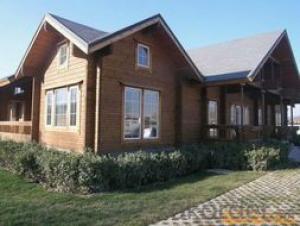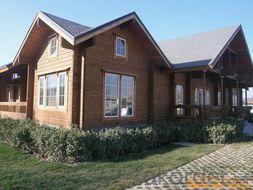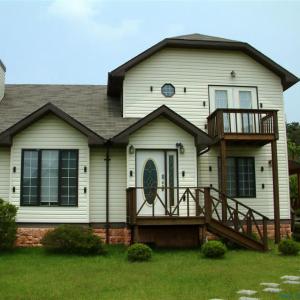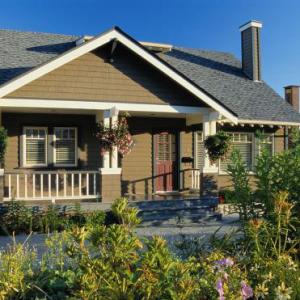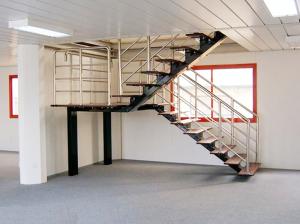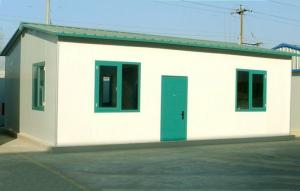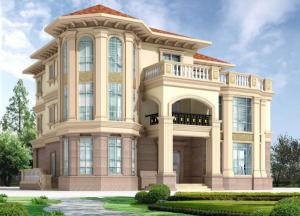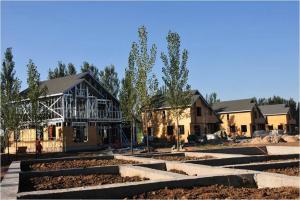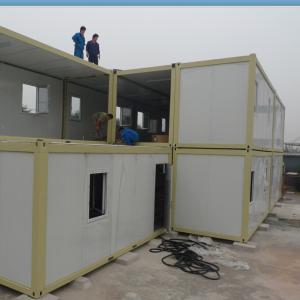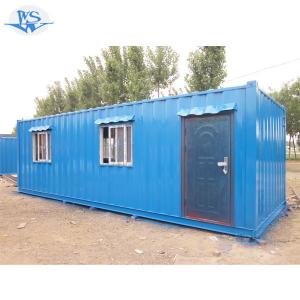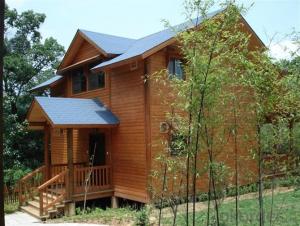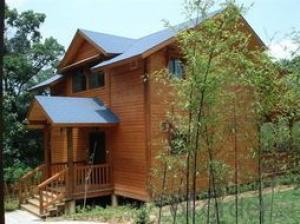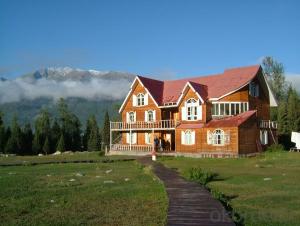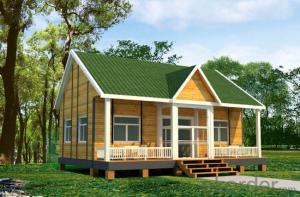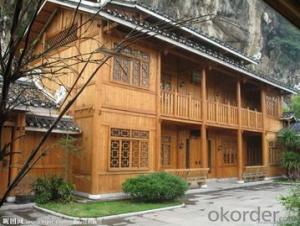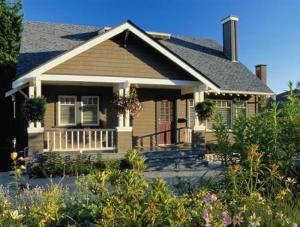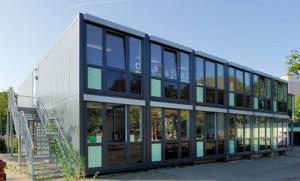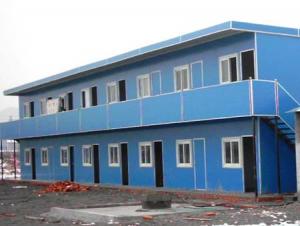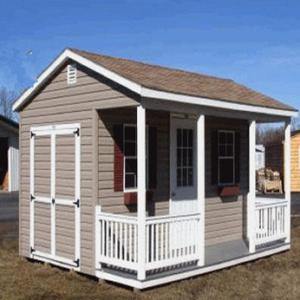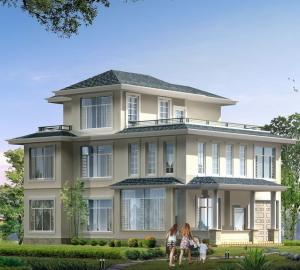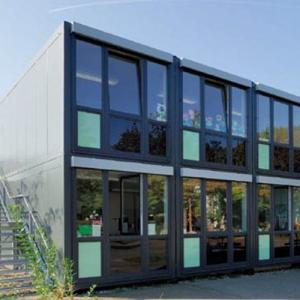wooden house
- Loading Port:
- China Main Port
- Payment Terms:
- TT OR LC
- Min Order Qty:
- -
- Supply Capability:
- -
OKorder Service Pledge
Quality Product, Order Online Tracking, Timely Delivery
OKorder Financial Service
Credit Rating, Credit Services, Credit Purchasing
You Might Also Like
wooden villa house
Benefits of factory built prefabricated houses and villas
| |
Very little maintenance | Reduce environmental pollution and save water |
Ease and speed of erection | Easily transportable |
Aesthetically pleasing | Buildings can be relocated |
Priced more economically than brick | Buildings can be designed by your choice
|
HOT!!!Economic Mobile house/prefab house
The most stand out point of the mobile house is low cost, short-term produce and prompt installation.
1,Structure is reliable: Light steel structure system is safe and reliable, satisfied modern architecture concept.
2,Easy assembly and disassembly: The house can be assembled and disassembled many times, used repeatedly. It just need simple tools to assemble. Each worker can assemble 20~30 square meters every day
3,Flexible layout: Door and window can be assembled in any position, partition wall panel can be assemble in any transverse axes sites.
4,Main material :C section steel and sandwich panel.
5,Application:Widly used in construction site,office building,dormitory, temporary school,termporary hospital etc.
- Q: Can container houses be built with multiple stories?
- Yes, container houses can be built with multiple stories. While shipping containers are typically used to create single-story structures, they can also be stacked or combined to construct multi-story container houses. This allows for greater flexibility and utilization of limited space. However, it is important to consider structural integrity and proper engineering when designing multi-story container houses to ensure the safety and stability of the structure. Additionally, additional modifications and reinforcements may be required to meet building codes and regulations.
- Q: Are container houses suitable for educational or learning centers?
- Educational or learning centers can indeed find container houses to be a suitable option. These distinct structures offer numerous advantages that make them an ideal choice for such purposes. To begin with, container houses possess great versatility and can be easily modified to meet the specific requirements of an educational center. They can be designed with multiple rooms or compartments, enabling the creation of separate classrooms or activity areas. These spaces can be effortlessly furnished and equipped with the necessary educational materials, thus fostering a favorable learning environment. Moreover, container houses prove to be cost-effective compared to traditional brick-and-mortar buildings. Educational institutions frequently encounter budget limitations, and container houses present a more affordable alternative. The initial cost of purchasing and converting containers is relatively low, and they require less maintenance and utility expenses over time. Additionally, container houses are portable and can be relocated as necessary. This flexibility allows educational centers to adapt to changing needs or move to more suitable locations. It also opens up the possibility of establishing temporary learning centers in areas affected by disasters or communities with limited resources. Container houses also contribute to environmental sustainability, as they repurpose used shipping containers that would otherwise contribute to landfill waste. Utilizing these containers for educational facilities promotes sustainable practices and instills environmental awareness among students. Lastly, container houses can be designed with modern amenities, such as air conditioning, heating, and proper insulation, ensuring a comfortable learning environment for both students and teachers. In conclusion, container houses are highly suitable for educational or learning centers due to their adaptability, affordability, portability, eco-friendliness, and ability to provide modern amenities. They offer a unique and innovative solution for educational institutions seeking to optimize their resources and establish conducive learning spaces.
- Q: Are container houses portable?
- Indeed, container houses possess the quality of being portable. The primary benefit of container houses lies in their mobility and convenient transportation. These dwellings are constructed from shipping containers, which are specifically engineered for shipment via ships, trucks, and trains. With their standardized dimensions and inclusion of corner castings and twist locks, these containers can be effortlessly loaded and unloaded onto various modes of transportation. Container houses have the ability to be transported and swiftly installed in any desired location, making them highly sought-after for temporary or mobile housing solutions. Moreover, if the situation calls for it, container houses can be readily disassembled and relocated to a new destination.
- Q: Do container houses require a strong foundation?
- Yes, container houses do require a strong foundation. Despite the fact that containers are structurally robust, a solid foundation is needed to evenly distribute the weight and ensure stability of the structure. A strong foundation helps prevent shifting, settling, and potential structural damage over time.
- Q: Are container houses suitable for temporary or permanent living?
- Depending on specific needs and circumstances, container houses can serve as suitable living spaces for both temporary and permanent purposes. The mobility and flexibility of container houses make them an excellent option for temporary living. They can be effortlessly transported and installed in various locations, making them a favored choice for temporary housing solutions like disaster relief or construction site accommodations. Alternatively, container houses can also be transformed into comfortable and functional permanent homes. By ensuring proper insulation, ventilation, and interior modifications, these houses can provide all the necessary amenities and a cozy living environment. They can be personalized according to individual preferences and can be expanded or combined to create larger living areas when required. In addition to their versatility, container houses are also cost-effective and eco-friendly, as they repurpose shipping containers that would otherwise be discarded. They are highly durable and can withstand harsh weather conditions, making them suitable for long-term living. However, it is crucial to consider the limitations of container houses, such as limited space and potential challenges in obtaining building permits in certain areas. Ultimately, the decision of whether container houses are suitable for temporary or permanent living depends on the specific requirements and preferences of individuals or organizations involved. With careful planning, design, and construction, container houses can offer a practical and sustainable housing solution for both temporary and permanent living situations.
- Q: Can container houses be designed with earthquake-resistant foundation systems?
- Indeed, it is possible to design container houses with foundation systems that are resistant to earthquakes. In fact, container houses have proven to be quite resilient in seismic events due to their strong structure and ability to withstand lateral forces. To enhance their resistance to earthquakes, container houses can be constructed on a foundation system that is both sturdy and flexible. This may involve the use of deep concrete footings or piers that are specifically designed to absorb and distribute the seismic energy generated during an earthquake. These footings can be strategically placed at key points along the container house structure to provide stability and prevent any potential damage. Moreover, engineers can employ innovative design techniques to further improve the earthquake resistance of container houses. This can include the incorporation of reinforced steel frames within the container structure, as well as the implementation of bracing systems to add strength and stability. Additionally, container houses can be designed in compliance with specific seismic codes and regulations. These codes ensure that the container house meets the required standards for earthquake resistance, taking into consideration factors such as the location, soil conditions, and anticipated seismic activity of the area. Overall, container houses can indeed be designed with earthquake-resistant foundation systems, making them a practical and secure choice for regions prone to seismic activity.
- Q: Are container houses suitable for areas with limited budget for construction?
- Yes, container houses are suitable for areas with limited budgets for construction. Container houses are cost-effective and affordable compared to traditional construction methods. They offer a cheaper alternative for individuals or communities looking to build homes in areas with limited resources. Additionally, the use of repurposed shipping containers reduces material costs and construction time, making them a practical choice for those with budget constraints.
- Q: Can container houses be off-grid?
- Yes, container houses can be off-grid. One of the advantages of container houses is their flexibility, which allows for various sustainable living options. To achieve off-grid living, container houses can be equipped with solar panels to generate electricity. These panels can be installed on the roof or nearby to harness sunlight and convert it into usable energy. Additionally, container houses can incorporate rainwater harvesting systems to collect and store rainwater for everyday needs. Some container houses also utilize composting toilets and graywater recycling systems to minimize water usage. By combining these eco-friendly technologies, container houses can operate independently from the traditional power grid and water supply, making them an ideal option for off-grid living.
- Q: Do container houses require a building permit?
- Yes, container houses generally require a building permit. The requirement for a building permit varies depending on the location and local regulations. In most jurisdictions, any structure that is intended for habitation or permanent use, including container houses, must comply with building codes and obtain the necessary permits. These permits ensure that the structure meets safety standards, zoning requirements, and other regulations. It is important to consult with local authorities or a professional architect to determine the specific requirements and obtain the appropriate permits before constructing a container house.
- Q: Are container houses suitable for individuals who prefer a modern lifestyle?
- Yes, container houses are definitely suitable for individuals who prefer a modern lifestyle. Container houses have gained popularity in recent years due to their sleek and contemporary design. They offer a unique and modern living space that can be customized to fit individual preferences and needs. Container houses are highly versatile and can be transformed into stylish and modern homes. They can be designed with large windows and open floor plans, allowing for plenty of natural light and an airy feel. Additionally, they can be equipped with modern amenities such as smart home technology, energy-efficient appliances, and luxurious finishes. Moreover, container houses are eco-friendly, which aligns with the values of many individuals who prefer a modern lifestyle. These houses are often made from recycled shipping containers, reducing waste and repurposing materials. They can also incorporate sustainable features like solar panels, rainwater harvesting systems, and green roofs, further reducing their environmental impact. Container houses also offer the advantage of affordability. Compared to traditional homes, container houses can be more cost-effective due to the use of recycled materials and simplified construction process. This allows individuals who prefer a modern lifestyle to invest in a unique and contemporary living space without breaking the bank. Overall, container houses are a great choice for individuals who prefer a modern lifestyle. They offer a stylish, customizable, and eco-friendly living space that can be tailored to individual preferences. Whether it's the sleek design, modern amenities, sustainability, or affordability, container houses provide a perfect blend of modern living and unique charm.
Send your message to us
wooden house
- Loading Port:
- China Main Port
- Payment Terms:
- TT OR LC
- Min Order Qty:
- -
- Supply Capability:
- -
OKorder Service Pledge
Quality Product, Order Online Tracking, Timely Delivery
OKorder Financial Service
Credit Rating, Credit Services, Credit Purchasing
Similar products
Hot products
Hot Searches
Related keywords
